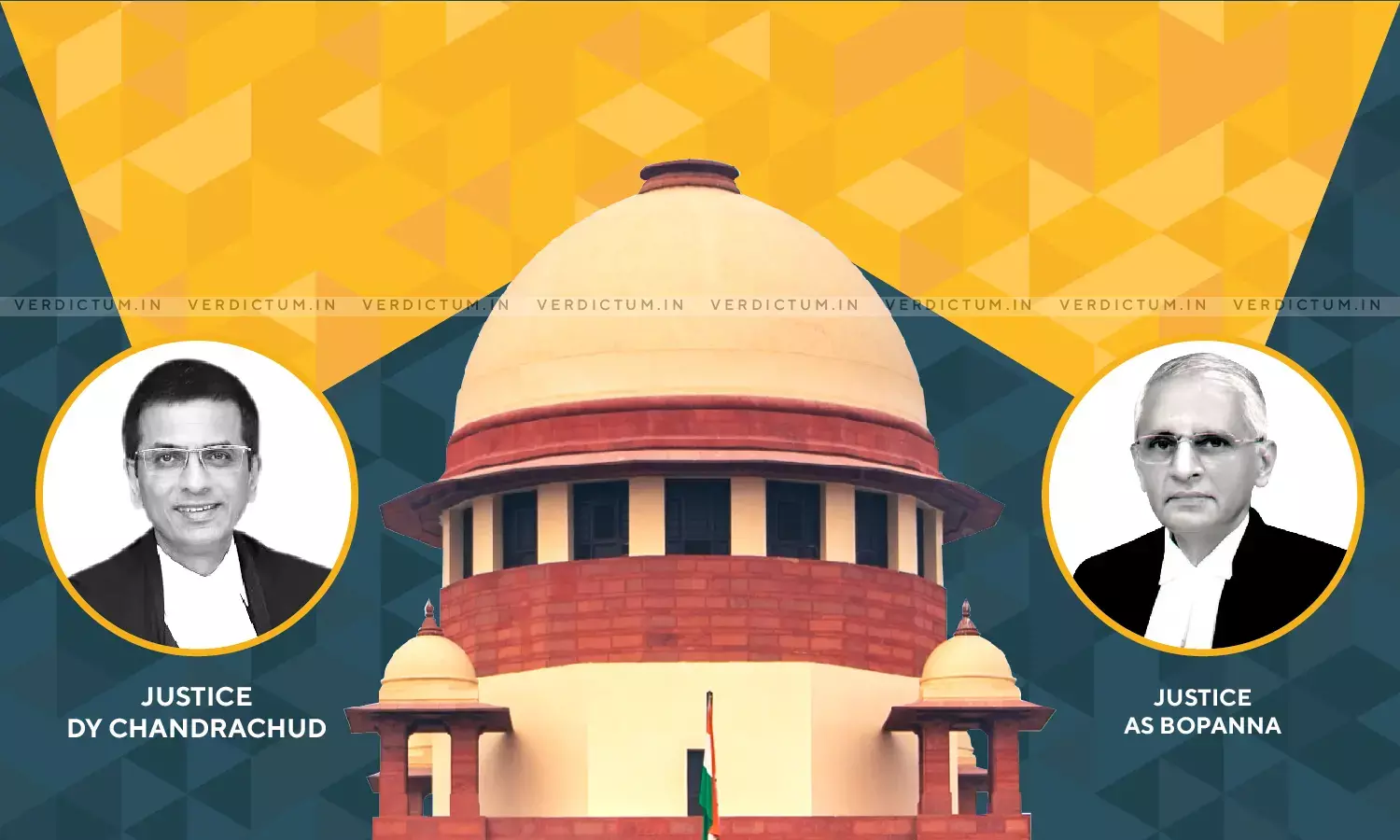Person Availing Service From Bank A Consumer Under Consumer Protection Act, Entitled To Remedies - SC
Person Availing Service From Bank A Consumer Under Consumer Protection Act, Entitled To Remedies - SC

The Supreme Court in a judgment rendered on August 8th has observed that a person who avails of any service from a bank will fall under the purview of the 'consumer' under the Consumer Protection Act 1986 and such consumer can seek remedies provided under the said Act.
"A person who avails of any service from a bank will fall under the purview of the definition of a 'consumer' under the 1986 Act. As a consequence, it would be open to such a consumer to seek recourse to the remedies provided under the 1986 Act.", the Bench of Justice Dhananjaya Y Chandrachud and Justice A S Bopanna observed.
In the instant case, it was the version of the appellant that he and his father had opened a joint fixed deposit account. Upon the FD maturing for payment, a request was jointly made to the bank for renewing it for ten days.
The appellant alleged that his father requested the bank manager to encash the entire FD amount to his (the father's) individual savings account. The next day, the appellant wrote to the respondent-bank with instructions to not transfer the FD amount to any individual bank account. However, contrary to the instructions, the proceeds of the FD were credited to the account of the appellant's father.
The appellant moved a consumer complaint on the allegation that there was a deficiency of service by the respondent-bank. The State Consumer Disputes Redressal Commission (SCDRC), declined to entertain the complaint on the ground that it was not a consumer dispute.
The SCDRC was of the view that the dispute was primarily between the appellant and his father on the issue of the FD amount deposited, and therefore only a civil court was competent to deal with such a dispute.
An appeal against the decision of the SCDRC was filed before the National Consumer Disputes Redressal Commission (NCDRC) but was dismissed as withdrawn.
The appellant then filed a review application along with an affidavit stating that he was present before the NCDRC and had not furnished any instructions to the counsel to withdraw the appeal. However, the review application also came to be dismissed.
Aggrieved, the appellant approached Supreme Court.
Advocate Kushagra Pandey appeared for the appellant whereas Senior Advocate Arvind Nayar appeared on behalf of the respondent-bank.
The Supreme Court noted that the SCDRC had no justification to relegate the appellant to pursue his claim before a civil court. The Court further noted that SCDRC was wrong in deducing that there was dispute between appellant and his father.
"The essence of the complaint of the appellant is that there was a deficiency on the part of the respondent bank in proceeding to credit the proceeds of a joint FD exclusively to the account of his father. The SCDRC ought to have determined whether the complaint related to deficiency of service as defined under the 1986 Act. The SCDRC had no justification to relegate the appellant to pursue his claim before a civil court. The appellant did not, in the proceedings before the SCDRC, raise any claim against his father.", the Bench observed.
The Court held that a person who avails of any service from a bank comes under the definition of 'consumer' under the 1986 Act and can seek remedies under the said Act.
The Court further expressed that the NCDRC should have entertained the review and should have set down the appeal for hearing.
Therefore, the Court set aside the NCDRC order and directed that the entirety of the dispute be resolved on merits by the NCDRC. The Court further directed NCDRC to dispose of the appeal within a period of four months.
Cause Title- Arun Bhatiya v. HDFC Bank & Ors
Click here to read/download the Judgment

